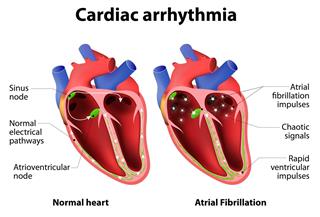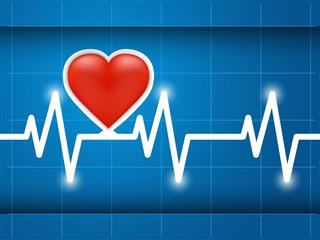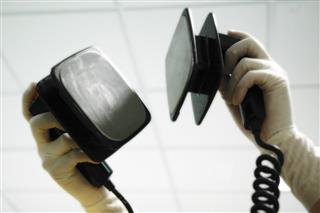
During pregnancy, heart rate over 100 BPM is usually considered as tachycardia. This article provides information on the causes and treatment of tachycardia during pregnancy. Read on, to know some simple remedies that help relieve stress during pregnancy.
The body of a pregnant woman undergoes several changes during 40 weeks of pregnancy. Hormonal changes, development of placenta, growing network of new blood vessels, growing uterus and fetus, etc. place extra stress on her heart. The cardiac output increases substantially as the heart has to supply blood to her body and to the growing fetus. The extra stress that the heart of a pregnant woman has to manage results in an increase in the heart rate. The heart has to work harder. So, the heart rate of a pregnant woman may increase by 10-20 beats per minute (BPM). At times, the woman may experience palpitations. Very high heart rate (above 100 bpm) needs prompt medical attention.
Types of Tachycardia
If a pregnant woman has faster than normal heart rate or rapid pulse rate as compared to the normal pulse rate for the given age, she is said to have ‘tachycardia’. The condition is classified as sinus (originating from the sinus node or heart’s natural pacemaker) and non-sinus tachycardia. Sinus tachycardia is further subdivided into two types, appropriate and inappropriate. Non-sinus tachycardia is again divided into supraventricular tachycardia (coming from the upper chambers of the heart) and ventricular tachycardia (coming from the lower chambers of the heart).
Causes
- Anemia
- Obesity
- Allergy to prenatal vitamins
- Overdose of prenatal vitamins
- Asthma
- Pulmonary embolism or blood clot in lungs
- Thyroid problems
- Ectopic pregnancy
- Lung Infection
- Anxiety, adrenal crisis
- Exertion
- Fever
- Sepsis
- Dehydration
- Amniotic fluid embolism
- Obstetric hemorrhage
- Acute blood loss
- Placental abruption
- Uterine rupture
- Side effect of drugs and medications
- Serious injury
- Excessive weight gain during pregnancy
- Heart diseases like myocardial infarction or interrupted blood supply to a part of the heart
Symptoms
A pregnant woman having high heart rate may experience:
- Palpitations
- Chest pain
- Shortness of breath
- Lightheadedness or dizziness
- Increased fatigue
- Fainting
- Numbness of various body parts (in severe cases)
Sinus tachycardia may exhibit some minor symptoms like:
- Exercise intolerance
- Anxiety
Sinus tachycardia is fairly common in pregnancy and may occur if the woman is anemic. Gestational supra-ventricular tachycardia (SVT) is harmless to mother and baby. Here is a list of causes of tachycardia during pregnancy, but for correct diagnosis of tachycardia, a pregnant woman should consult her doctor.
Treatment
Treatment of tachycardia in pregnancy requires thorough information about how and where the arrhythmia (abnormal beating of heart) was initiated and propagated. How much weight the woman has gained needs to be properly monitored. Pregnant women should avoid stimulants like caffeine, tobacco, alcohol or drugs. If the tachycardia is due to an underlying heart or lungs disease, it needs to be promptly treated. For that, the woman needs to seek medical assistance. Pregnant women should never take over-the-counter medicines for tachycardia. Treatment of sinus tachycardia may include drugs called beta blockers, calcium channel blockers and antiarrhythmic drugs. Beta blockers control the effect of adrenaline on the sinus node. The calcium blockers and antiarrhythmic drugs control the ‘firing rate’ of the sinus node.
Caution: Amiodarone is the antiarrhythmic drug that is responsible for significant fetal abnormalities. Racing heart rate or sustained atrial arrhythmias may be associated with the use of sympathomimetic drugs such as pseudoephedrine. So the pregnant woman should inform her doctor about the medicines taken.
Mild tachycardia can be considered normal during pregnancy, as the mother’s heart has to work harder to pump more blood into the uterus. It should not be a cause for panic. Taking adequate rest, drinking plenty of water and other healthy liquids to keep the body cool and well hydrated, are some of the simple remedies that can help the body in handling the changes in the heartbeats. Stress relievers like meditation can help get rid of stress and anxiety. Pregnant women who are not severely affected by the symptoms, need not worry about the tachycardia, as the symptoms may subside on their own, with time.
Disclaimer: This article is for informative purposes only, and should not be used as a replacement for expert medical advice.



